May 22, 2019
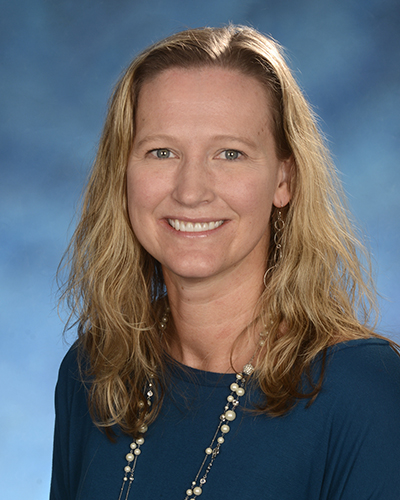
Program Will Expand Focus on Basic, Clinical and Population Health Science
Jay S. Magaziner, PhD, MSHyg, Professor and Chair of the Department of Epidemiology and Public Health at the University of Maryland School of Medicine (UMSOM), along with UMSOM Dean E. Albert Reece, MD, PhD, MBA, announced new leadership for UMSOM’s Program in Health Disparities and Population Health (HDPH), a program housed in the Department of Epidemiology and Public Health that combines research, education and service to advance health equity.
Erin Hager, PhD, Associate Professor of Pediatrics, was named Director of the Program, and Laundette Jones, PhD, MPH, Assistant Professor of Epidemiology and Public Health, was named Deputy Director of the Program. Their appointments reflect the expansion of the program to involve more basic and clinical scientists in addressing key issues in health disparities and population health. Both Dr. Hager and Dr. Jones assumed their new roles on May 1.
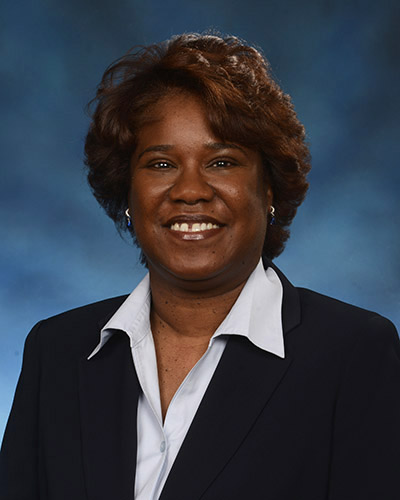 Dr. Hager, who holds a secondary appointment in the Department of Epidemiology and Public Health, is a nutritional epidemiologist whose research focuses on programs and policies to promote health and prevent obesity among pediatric populations. Dr. Jones, who is also Associate Director, Science Training for Advancing Biomedical Research Postbaccalaureate Education Program (STAR-PREP), conducts basic laboratory research that has led to important discoveries related to genetic and environmental risk factors for breast cancer. Drs. Hager and Jones will focus on building the research program and attracting federal funding for HDPH.
Dr. Hager, who holds a secondary appointment in the Department of Epidemiology and Public Health, is a nutritional epidemiologist whose research focuses on programs and policies to promote health and prevent obesity among pediatric populations. Dr. Jones, who is also Associate Director, Science Training for Advancing Biomedical Research Postbaccalaureate Education Program (STAR-PREP), conducts basic laboratory research that has led to important discoveries related to genetic and environmental risk factors for breast cancer. Drs. Hager and Jones will focus on building the research program and attracting federal funding for HDPH.

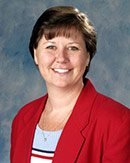
Previous Co-Directors of the Program, Wendy Lane, MD, MPH, Associate Professor, Department of Epidemiology and Public Health, and J. Kathleen (Kate) Tracy, PhD, Associate Professor, Department of Epidemiology and Public Health, will now serve on a new Executive Leadership Board that has been created for the Program. Each board member will concentrate on a different aspect of health disparities and population health. Members include: Dr. Lane, whose focus is on community-based child maltreatment and research; Dr. Tracy, whose focus is on disparities in women’s health and population health research and medical informatics; and David Marcozzi, MD, MHS-CL, FACEP, Associate Professor in the Department of Emergency Medicine, whose emphasis is on integration of healthcare delivery, fiscal approaches to population health and health policy development.

“This new leadership structure and additional expertise in basic and population health science will enable the program to gain a greater understanding of the scientific underpinnings and consequences of health disparities, “said Dr. Magaziner, who is also Director of UMSOM’s Center for Research on Aging. “For example, we will focus specifically on addressing the differences in health and healthcare between populations, such as the higher burdens of illness, injury or mortality experienced by one group relative to another.”

The Executive Leadership Board will work closely with the Program’s new leadership, along with Lily Jarman-Reisch, MSW, MA, Associate Director of the Program, who oversees program development and operations for HDPH.
“An understanding of the social, economic and environmental factors in health is crucial in addressing health inequities,” said Dean Reece, who is also Executive Vice President for Medical Affairs, UM Baltimore, and the John Z. and Akiko K. Bowers Distinguished Professor. “The broader scientific mission of the Program in Health Disparities and Population Health, based on addressing the social determinants of health, will provide valuable research findings and a scientific foundation for advancing health equity.”
For more information about the Program in Health Disparities and Population Health (HDPH), visit: https://www.medschool.umaryland.edu/lecture-in-health-equality/
About the University of Maryland School of Medicine
Now in its third century, the University of Maryland School of Medicine was chartered in 1807 as the first public medical school in the United States. It continues today as one of the fastest growing, top-tier biomedical research enterprises in the world -- with 43 academic departments, centers, institutes, and programs; and a faculty of more than 3,000 physicians, scientists, and allied health professionals, including members of the National Academy of Medicine and the National Academy of Sciences, and a distinguished recipient of the Albert E. Lasker Award in Medical Research. With an operating budget of more than $1 billion, the School of Medicine works closely in partnership with the University of Maryland Medical Center and Medical System to provide research-intensive, academic and clinically-based care for more than 1.2 million patients each year. The School of Medicine faculty, which ranks as the 8th highest among public medical schools in research productivity, is an innovator in translational medicine, with 600 active patents and 24 start-up companies. The School works locally, nationally, and globally, with research and treatment facilities in 36 countries around the world. Visit www.medschool.umaryland.edu
About the Department of Epidemiology and Public Health
One of the largest departments in the SOM, the Department of Epidemiology and Public Health is uniquely qualified to house the Program in Health Disparities and Population Health. Focused on population health, EPH faculty educate health professionals about issues related to health disparities, engage in multidisciplinary research, and promote quality clinical care for diverse populations.
The department administers a Master of Public Health program, which offers concentrations in Community and Population Health and Global Health, two critically important components of health disparities education and research. It also sponsors a Grand Rounds series in health disparities and population health, and the Renee Royak-Schaler Annual Lecture in Health Disparities, which brings the best scholars and policy makers in the country to the university to present their work on pressing issues in population health and health disparities.
Contact
Office of Public Affairs
655 West Baltimore Street
Bressler Research Building 14-002
Baltimore, Maryland 21201-1559
Contact Media Relations
(410) 706-5260
Related stories

Thursday, January 28, 2021
COVID-19 Pandemic Led to Decreased School Meal Access for Children in Need Across Maryland, UM School of Medicine Study Finds
School closures during COVID-19 have decreased access to school meals, which is likely to increase the risk for food insecurity among children in Maryland, according to a new report issued by researchers at the University of Maryland School of Medicine (UMSOM). The number of meals served to school-age children during the first three months of the pandemic dropped by 58 percent, compared to the number of free or reduced-price meals served the previous spring. As a result, thousands of children across the state were placed at increased risk of food insecurity, with many likely experiencing the health ramifications associated with the abrupt disruption in their access to regular meals.
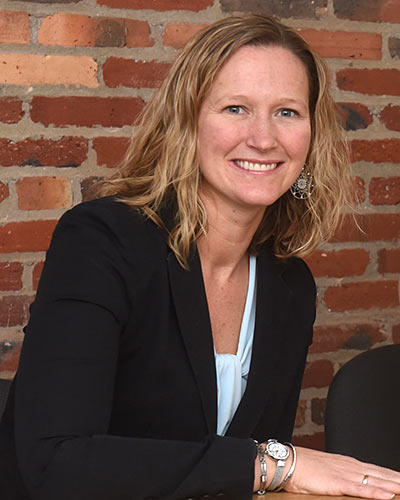
Thursday, April 12, 2018
Maryland Schools are Doing More to Improve Kids Health, Report Finds
Schools across Maryland are doing more to encourage their students to eat healthy foods and to be physically active, according to a new report by researchers at the University of Maryland School of Medicine.
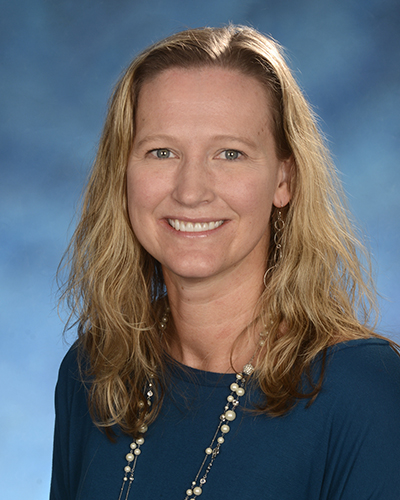
Thursday, December 08, 2016
UMSOM Receives Grants to Examine Fresh Approach to Promoting Health and Wellness in Maryland Schools
The University of Maryland School of Medicine has received almost $5 million from the Department of Agriculture to develop innovative ways to prevent childhood obesity by promoting healthy eating and exercise in city and state schools. The program takes a new approach, training teachers and students to improve schools themselves.
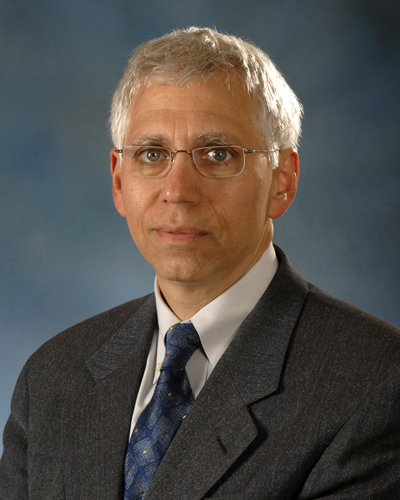
Tuesday, March 22, 2016
Program in Health Disparities and Population Health at University of Maryland School of Medicine Moving Forward in Department of Epidemiology and Public Health
Jay S. Magaziner, PhD, MS, Hyg, Professor and Chair, Department of Epidemiology and Public Health (EPH) at the University of Maryland School of Medicine (UM SOM) and Dean E. Albert Reece, MD, PhD, MBA, announced today that the Program in Health Disparities and Population Health, formerly the Program in Minority Health and Health Disparities in Education and Research (PMHHD) led by the now-retired Dr. Claudia Baquet, has a new home in the Department of Epidemiology and Public Health.
